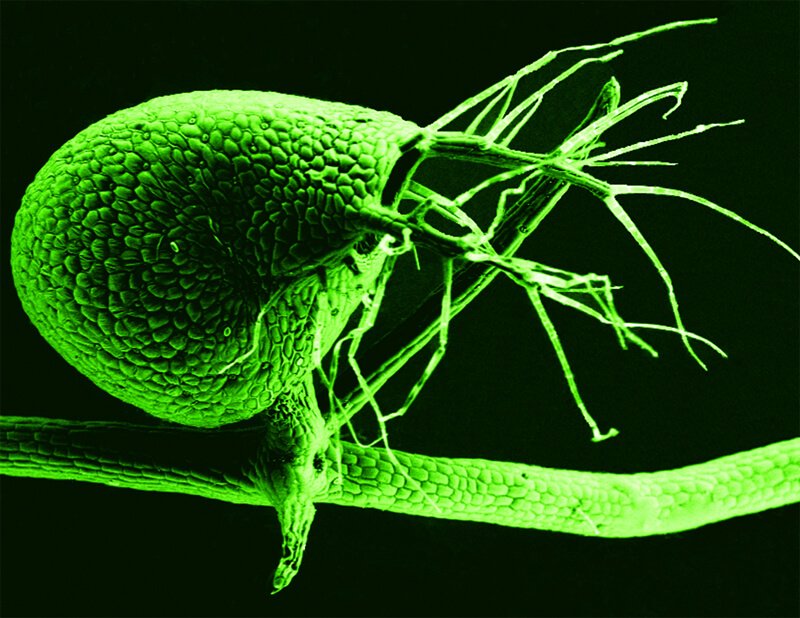The following is an editorial summary.
Whether or not “junk” DNA is actually useful has been a topic of debate. Recent findings from the ENCODE project suggested that junk DNA might, in fact, be extremely useful. Not everyone agreed. Now a new paper in Nature examining the genome of a carnivorous plant provides evidence that, at least in some cases, “junk DNA” really is junk.
As Ed Yong writes at his National Geographic blog:
Take the floating bladderwort. This flesh-eating water plant is a genetic minimalist, adrift in a world of hoarders. The onion, for example, has around five times more DNA than you do, with a genome that’s around 15 billion DNA letters long.
The bladderwort, however, has a paltry 82 million letters in its genome—40 times fewer than you.
By sequencing the bladderwort genome, Enrique Ibarra-Laclette from the CINESTAV institute in Mexico City has shown that it’s largely junk-free. Its genes are squashed together and around three-quarters of its DNA codes for proteins. The extraneous sequences between them are few and far between. And yet, the plant survives. “Our results suggest that “junk” DNA is not necessary for the function of complex organisms,” says Luis Herrera-Estrella who led the study.
View the full story here: Flesh-Eating Plant Cleaned Junk From Its Minimalist Genome
Additional Resources:
- “98 percent of DNA is unnecessary ‘junk’,” Live Science
- “Carnivorous Plant Throws out ‘Junk’ DNA,” Science Daily
- “Carnivorous Plant Gives Unique Insight on ‘Junk’ DNA,” Nature World News































